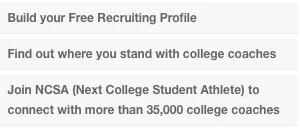NCAA Sues PA on Constitutional Grounds
The NCAA fired back at the commonwealth of Pennsylvania, which is already suing the NCAA to have the Penn State sanctions overturned, with a lawsuit that challenges a proposed law in Pennsylvania which would require the NCAA to spend PSU’s $60 million fine in the state:
The actions, the lawsuit said, would disrupt interstate commerce by attempting to legislate where private parties like the NCAA spend their money and by confiscating funds intended for the victims of child sexual abuse nationwide to be used solely for the benefit of Pennsylvania residents, at the direction of Pennsylvania officials.
The constitutional principle here is something called the Dormant Commerce Clause. The Commerce Clause of the Constitution gives Congress the power to regulate interstate commerce. The Dormant Commerce Clause is the implied corrallary to that principle: that a state may not interfere with, unduly burden, or discriminate against interstate commerce.
The Dormant Commerce Clause is the source of one of the NCAA’s most important but least talked about legal victories, NCAA v. Miller. That case arose out of the Tarkanian scandal, after which the state of Nevada passed laws which would have forced the NCAA to raise due process protections when dealing with Nevada schools, coaches, administrators and athletes (and thus probably everyone else under the NCAA auspices). The NCAA challenged the case using the Dormant Commerce Clause and won in the Ninth Circuit Court of Appeals.
NCAA v. Miller (although not a Supreme Court case) protects the NCAA from being torn about by state legislatures. As a result of that case, a state may not pass a rule allowing athletes to be paid or requiring schools to ignore the NCAA academic eligibility rules. In effect, it limits what type of state regulation the NCAA can come under, to only things consistent with NCAA regulations. An example are student-athlete rights bills which normally require schools to do things which the NCAA already allows.
Now with suit and countersuit pending, the NCAA and Pennsylvania can get down to settling the case. But if they do not, expect the NCAA to fight viciously in their case to defend and even expand one of their most important legal precedents.


